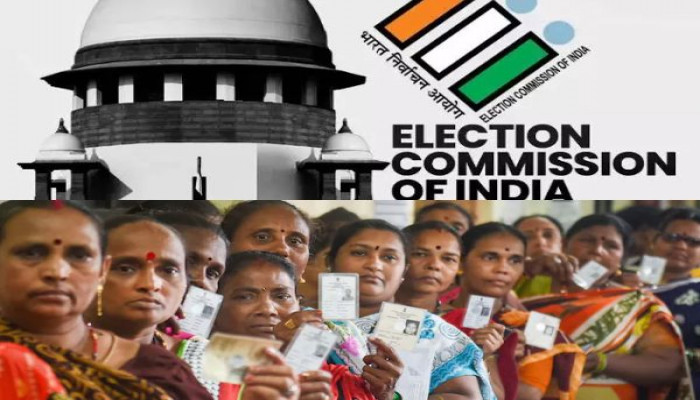EC informs Supreme Court it cannot share names of 65 lakh deleted Bihar voters
- In Reports
- 05:59 PM, Aug 11, 2025
- Myind Staff
The Election Commission of India informed the Supreme Court that it cannot provide the names of the 65 lakh voters deleted from the Bihar draft electoral rolls or the reasons for their deletion at this stage. This followed its previous refusal to release a digital, machine-readable list of voters.
"Since neither the law nor the guidelines contemplate preparation or furnishing of any such list of preceding electors whose enumeration form is not received for any reason during the Enumeration stage, no such list can be requested by the petition as of right," the EC document read.
The Election Commission guaranteed the Supreme Court that no eligible voter in Bihar would be removed from the voters' rolls without being given due notice. In its Saturday affidavit, the poll body stated that it was going "all out" to ensure that each and every eligible voter would be included in the final roll during the current Special Intensive Revision.
The Commission stated that any deletion from the draft electoral roll brought out on 1 August 2025 would be proposed only after a notice detailing the reasons for it was issued. It stated that all voters would have the right to make their case, furnish necessary documents and receive a "reasoned order" before making a final order.
The measures enumerated by the Commission were booth-level visits, involvement of political parties, awareness campaigns and assistance to vulnerable groups. The first phase, house-to-house verification by the Booth Level Officers, had been completed and the draft roll was now out in the public domain. Of 7.89 crore voters, 7.24 crore had returned enumeration forms.
On 6 August, Justices Surya Kant, Ujjal Bhuyan and N Kotiswar Singh bench directed the poll panel to provide the details of the deleted voters by 9 August. The Court instructed that the information already provided to political parties be also provided to the Association for Democratic Reforms.
The Association for Democratic Reforms, which had opposed the Election Commission's 24 June order for a Special Intensive Revision of Bihar's electoral rolls, had requested the public disclosure of deleted names along with grounds like death, migration or other disqualifications.
Advocate Prashant Bhushan, who represented the Association for Democratic Reforms, stated that political parties were provided with a list of erased voters but not informed if the voters had died or had migrated. The Court pointed out that the reasons for erasure would be provided subsequently because the list was still a draft.
Bhushan asserted that 75 percent of the voters who had completed the enumeration forms had not submitted any of the 11 supporting documents required and were included only at the suggestion of the Booth Level Officers.
The Supreme Court would be hearing the petitions against the order of 24 June on 12 August and would follow the proceedings on 13 August.
The preliminary electoral rolls, issued on 1 August, comprised 7.24 crore voters but had deleted more than 65 lakh names. The Election Commission attributed these deletions to death, which included 22.34 lakh names, permanent migration or absence, which included 36.28 lakh names, and duplicate enrolment, which included 7.01 lakh names.
The Special Intensive Revision, which was announced only a few months ago ahead of the Bihar assembly polls, had invited the ire of opposition parties who had claimed it would disenfranchise many eligible voters. The claims and objections phase would go on till 1 September and the final rolls would come out on 30 September.
On 29 July, the Supreme Court stated that the Election Commission, being a constitutional authority, had to act as per law and threatened to intervene in case of "mass exclusion" of voters. It stated that there should be "en masse inclusion" rather than exclusion and that Aadhaar and voter ID cards were to be regarded as valid proof for enrolment.
The Election Commission had justified the revision, stating it was necessary in order to make the "purity" of the electoral rolls possible through the deletion of names of persons who were not eligible.







Comments